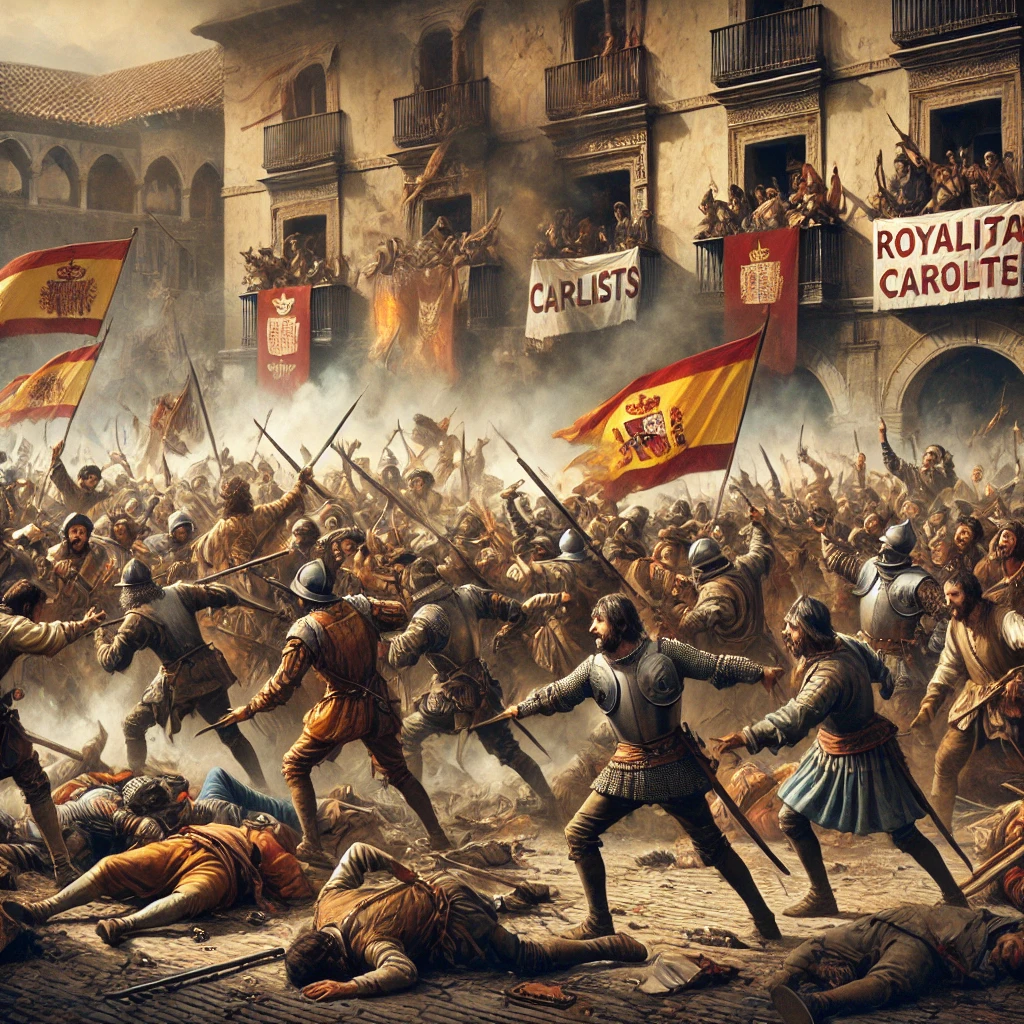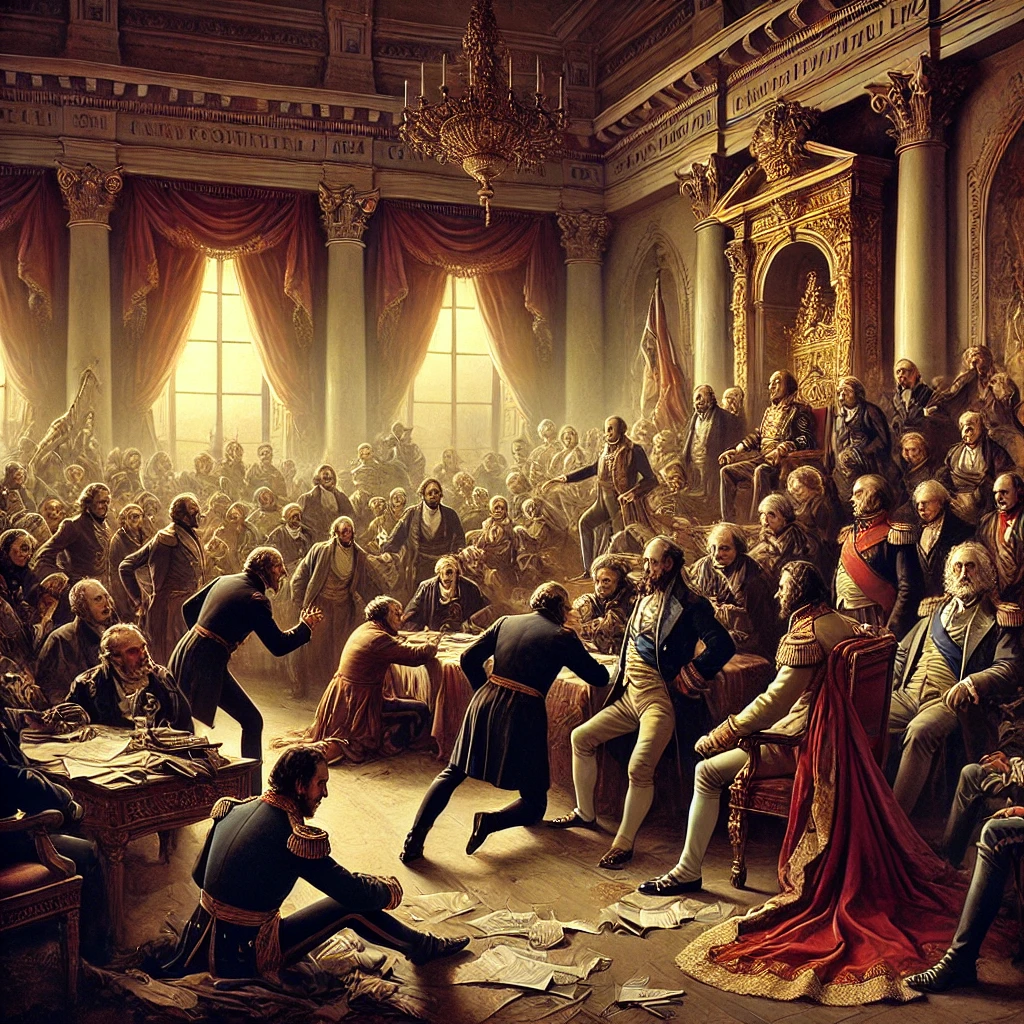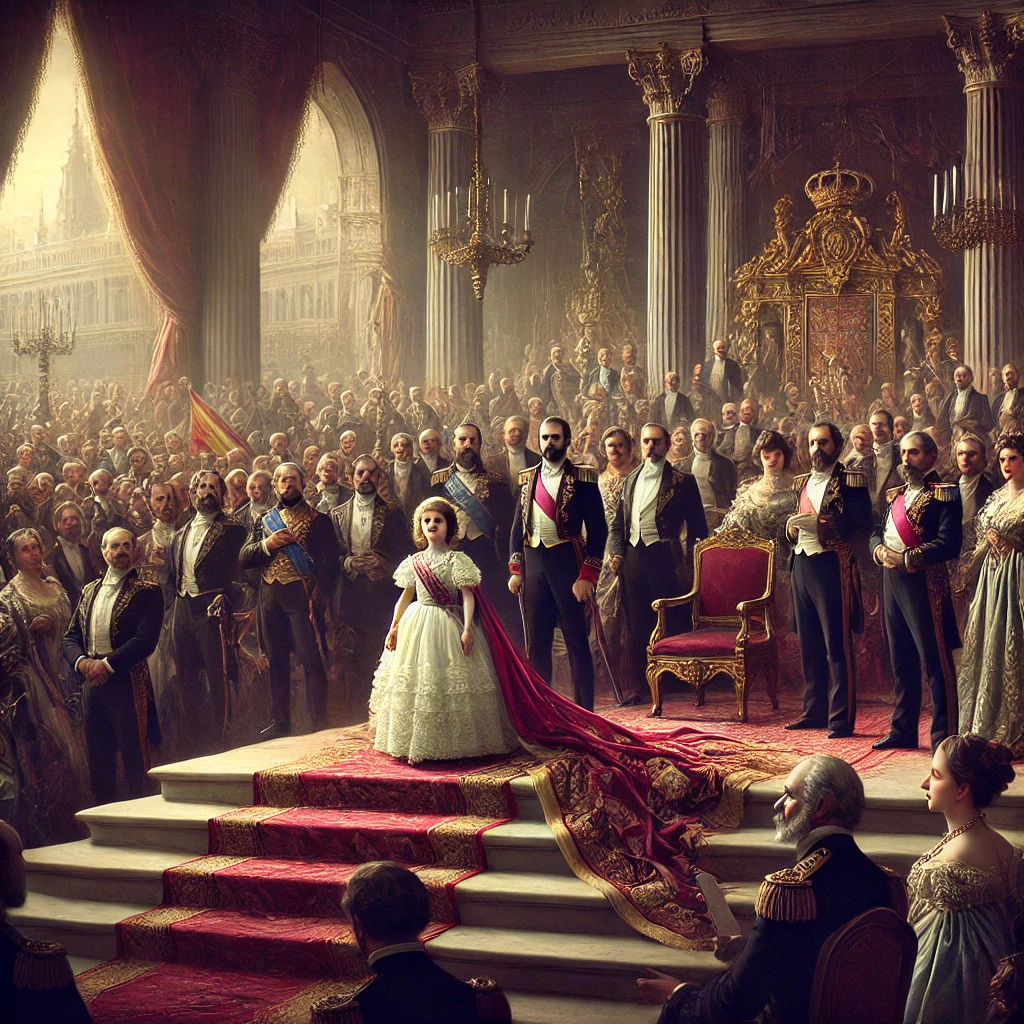On September 28, 1833, Spain entered a new chapter in its monarchy with the death of King Ferdinand VII. His passing not only marked the end of his reign but also ushered in a period of political turmoil as his two-year-old daughter, Isabella II, was proclaimed queen. This unprecedented transition of power to a child queen would have profound implications for Spain’s future, leading to a tumultuous era marked by civil strife and constitutional conflict.

The Context of Ferdinand VII’s Reign
Ferdinand VII ascended to the Spanish throne in 1813 after a period of French occupation during the Napoleonic Wars. His reign was characterized by a struggle between conservative and liberal factions, as he oscillated between absolute monarchy and limited constitutional governance. His decisions, including the repeal of the liberal Constitution of 1812, alienated many progressives and set the stage for ongoing conflict.
As Ferdinand’s health deteriorated in the years leading up to his death, concerns grew about the future of the monarchy. His decision to declare Isabella as his successor, overriding the Salic law that prevented women from inheriting the throne, laid the groundwork for a bitter succession crisis. This choice would ignite fierce disputes over the legitimacy of Isabella’s claim to the throne and lead to the Carlist Wars.

The Proclamation of Isabella II
With Ferdinand VII’s death, the Spanish throne was passed to Isabella II, who became queen at the tender age of two. Initially, her mother, Maria Christina, served as regent, managing the affairs of state until Isabella came of age. The proclamation of Isabella as queen represented a significant moment in Spanish history, as it challenged traditional norms regarding female succession and the power dynamics within the royal family.
However, the political landscape was fraught with instability. The Carlists, supporters of Ferdinand’s brother, Don Carlos, rejected Isabella’s legitimacy and claimed the throne for him. This dispute ignited the First Carlist War (1833-1839), a brutal conflict that divided the nation and pitted traditionalist factions against liberal reformers. The war highlighted deep-seated regional and ideological divisions within Spain.
The Impact of Isabella II’s Reign
Isabella II’s reign was marked by significant challenges, including political instability, social unrest, and a series of changes in government. The struggle between conservative and liberal forces dominated her early years, leading to frequent changes in regency and governance. As a young queen, Isabella was often perceived as a pawn in the power struggles of her advisors, which further undermined her authority. Despite these challenges, Isabella’s reign also saw important developments in Spain. The 1837 Constitution established a constitutional monarchy, promoting liberal reforms and setting the stage for future political change. However, the ongoing conflict and instability would plague her rule, leading to her eventual abdication in 1868.

Legacy and Historical Significance
Isabella II’s ascent to the throne and her tumultuous reign left an indelible mark on Spanish history. The controversies surrounding her legitimacy and the Carlist Wars highlighted the vulnerabilities of the monarchy and the complexities of succession. These events paved the way for further political upheaval and reform in Spain, ultimately influencing the trajectory of the nation’s governance. Isabella’s reign also contributed to the broader discourse on women’s roles in leadership and governance. Her position as queen challenged traditional notions of female authority in a male-dominated society, even if her actual power was often limited. The legacy of her rule continues to resonate in discussions about gender and power dynamics in contemporary politics.
Reflection on Modern Spain
Today, the historical significance of Isabella II is recognized as part of Spain’s rich and complex narrative. The challenges she faced as a child queen reflect the struggles of leadership and governance that resonate in modern politics. Her reign serves as a reminder of the intricate relationship between monarchy and democracy, as Spain continues to navigate its political landscape.
The death of King Ferdinand VII on September 28, 1833, and the subsequent proclamation of his daughter Isabella II as queen marked a pivotal moment in Spanish history. While her reign was fraught with challenges and controversy, it also laid the groundwork for significant political developments in Spain. The legacy of Isabella II continues to influence discussions about monarchy, gender, and governance, reminding us of the complex interplay between power and society throughout history.
